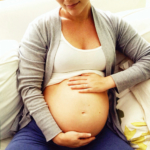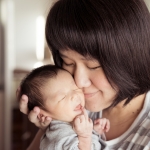In this population-based retrospective cohort study analyzing data from January 2010 through December 2016 Health and Welfare Database in Taiwan, researchers identified pregnant women between the ages of 18 and 49 years of age. The women were categorized as antipsychotic users (during the first 20 weeks of pregnancy) and antipsychotic non-users. Antipsychotic users were further categorized into two groups depending on whether they used first- or second-generation antipsychotics. In their analysis, propensity scares were used to control for potential confounders.
Compared to non-users, antipsychotic users had a higher risk of preterm birth (adjusted HR, 1.29; 95% CI, 1.04 to 1.60), but the risk of gestational diabetes did not differ between the two groups (HR, 1.21; 95% CI, 0.94 to 1.56). Nor did risk for LBW (odds ratio [OR], 1.07; 95% CI, 0.84 to 1.37) or macrosomia (OR, 1.36; 95% CI, 0.63 to 2.92). Looking only at women who received antipsychotics, the odds of LBW were higher in women using second-generation compared to first-generation antipsychotics (adjusted OR, 1.32; 95% CI, 1.04 to 1.68).
While a previous study documented a higher risk of gestational diabetes in women who used second generation antipsychotic medications during pregnancy (specifically olanzapine, clozapine and quetiapine), this study did not observe a higher risk of metabolic complications (gestational diabetes in the mother, macrosomia in the infant) in pregnancies exposed to antipsychotic medications. This discrepancy most likely reflects the fact that the cohort in the current study includes a smaller number of women using quetiapine and olanzapine.
The study indicated a small but statistically significant increase in risk of preterm birth and low birth weight (only in those with exposure to second generation antipsychotics). While this may reflect a risk associated with medication exposure, we cannot rule out the possibility of confounding by indication.
The National Pregnancy Registry for Atypical Antipsychotic Medications
Because the data available regarding the use of atypical antipsychotic medications in pregnancy is sparse, there is a great need to study these medications and their use in pregnancy. The National Pregnancy Registry for Atypical Antipsychotics is currently enrolling pregnant patients taking atypical antipsychotic medications to learn more about reproductive safety of these medications.
Interested patients and clinicians may contact the registry by phone at 1-866-961-2388 or by email at registry@womensmentalhealth.org for more information.
Ruta Nonacs, MD PhD
Lin HY, Lin FJ, Katz AJ, Wang IT, Wu CH. Antipsychotic Use in Early Pregnancy and the Risk of Maternal and Neonatal Complications. Mayo Clin Proc. 2022 Nov; 97(11):2086-2096.








Leave A Comment